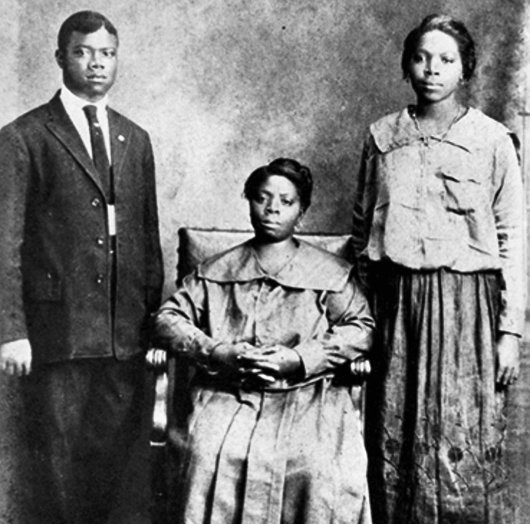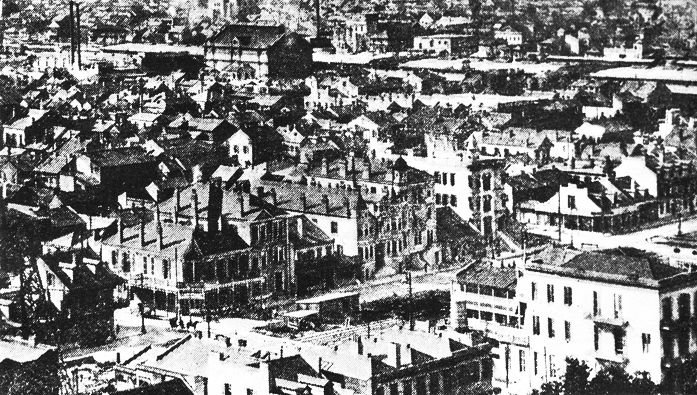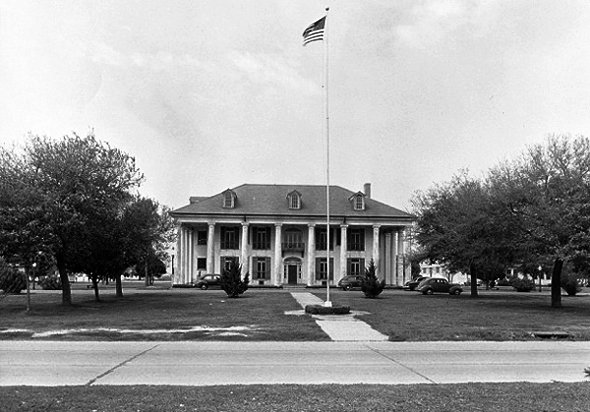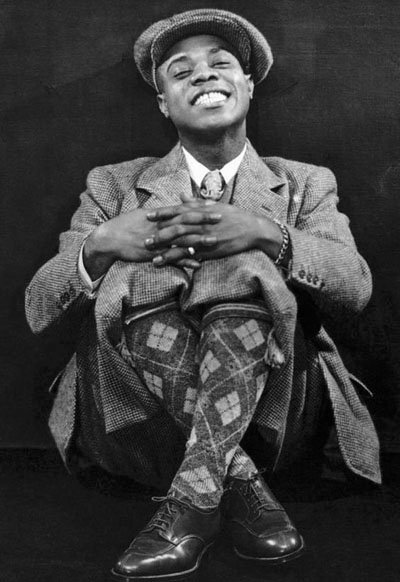When You’re Smiling (versión original, 1929)
Louis Armstrong and his Orchestra: Carroll Dickerson (director, violín), Louis Armstrong (trompeta,voz), Homer Hobson (trompeta), Bert Curry y Crawford Wetherington (saxo alto), Jimmy Strong (saxo tenor, clarinete), Fred Robinson (trombón), Gene Anderson (piano), Mancy Carr (banyo), Pete Briggs (contrabajo) y Zutty Singleton (batería) (1929).
Louis Armstrong nació en el gueto de Nueva Orleans en 1901 y poco después su padre, que trabajaba en una fábrica, abandonó la familia y se marchó con otra mujer. Puesto que su madre se trasladó al barrio de Storyville, donde ejerció la prostitución, fue criado por su abuela paterna, que nació esclava y fue liberada después de la Guerra Civil, hasta que tuvo cinco años y volvió con su madre. Pasó su juventud en la pobreza, viviendo en una pequeña casa de madera en un barrio llamado «el campo de batalla» por la inseguridad que había en sus calles. A los seis años ingresó en la Fisk School for Boys, en la que se aceptaban niños negros bajo la segregación racial imperante en la ciudad.
Louis Armstrong was born in the New Orleans ghetto in 1901, and soon after, his father, who was a factory worker, left the family and went off with another woman. Since his mother moved to the Storyville district, where she practiced prostitution, he was raised by his paternal grandmother, who was born a slave and liberated after the Civil War, until he was five years old and was given back to his mother. He spent his youth in poverty, living in a small wood-framed house in a neighborhood called “The Battlefield” because of the insecurity on its streets. At the age of six he enrolled in the Fisk School for Boys, which accepted black children under the city’s racial segregation.

También hacía trabajos para una familia de inmigrantes judíos lituanos que lo acogió en su seno, como recoger chatarra y repartir carbón en Storyville, donde escuchaba los primeros sonidos del jazz que salían de los burdeles y salones de baile en los que tocaban bandas como las del trompetista Mutt Carey, el clarinetista Sidney Bechet, el trombonista Kid Ory, el cornetista Freddie Keppard, y el cornetista y compositor Joe «King» Oliver. Además vio tocar al mítico trompetista Buddy Bolden mirando a escondidas desde el exterior del Funky Butt Hall y seguía con atención los desfiles de las célebres bandas de su ciudad. Un chatarrero para el que trabajaba cuando estudiaba primaria le ayudó a comprar una corneta y el cornetista Bunk Johnson le enseñó a tocar de oído.
Armstrong also did jobs for a family of Lithuanian Jewish immigrants who took him in, like collecting junk and delivering coal in Storyville, where he heard the first sounds of jazz coming out of the brothels and dance halls where bands like trumpeter Mutt Carey, clarinetist Sidney Bechet, trombonist Kid Ory, cornetist Freddie Keppard, and cornetist and songwriter Joe “King” Oliver, played. He also saw legendary trumpeter Buddy Bolden perform peeking from outside the Funky Butt Hall and followed with interest the parades of the famous brass bands of his city. A junk dealer for whom he worked as a grade-school student helped him buy a cornet and cornetist Bunk Johnson taught him to play by ear.

Abandonó la escuela a los once años para unirse a un cuarteto de chicos llamado «Singing Fools» que cantaban en las calles gospel y ragtime por dinero. Sin embargo, en la Nochevieja de 1913 cogió sin permiso la pistola de su padrastro. Poco después de la medianoche del 1 de enero disparó varias balas de fogueo al aire mientras lo celebraba y fue enviado al reformatorio Colored Waif’s Home for Boys, donde permaneció dieciocho meses. Esto resultó ser muy positivo para él, ya que a pesar de las duras condiciones de vida allí, encontró un entorno estructurado donde pudo aprender a leer y escribir, y a tocar música según la tradición militar.
Armstrong dropped out of school at 11 to join a quartet of boys called “Singing Fools” who sang in the streets gospel and ragtime for money. However, on 1913 New Year’s Eve he took his stepfather’s gun without permission. Then, shortly after midnight on January 1st he fired several blanks into the air while celebrating and was sent to the Colored Waif’s Home for Boys reform school, where he remained for eighteen months. This turned out to be very positive for him, since despite the hard living conditions there, he found a structured environment where he learned to read and write, and to play music in the military tradition.

Translated with the help of DeepL

When You’re Smiling (versión de 1956)
Louis Armstrong con Sy Oliver y su orquesta.


¡Enhorabuena!
✅ Has hecho un buen trabajo, por lo cual tu publicación ha sido valorada y ha recibido el apoyo de parte de CHESS BROTHERS ♔ 💪
♟ Te invitamos a usar nuestra etiqueta #chessbrothers y a que aprendas más sobre nosotros.
♟♟ También puedes contactarnos en nuestro servidor de Discord y promocionar allí tus publicaciones.
♟♟♟ Considera unirte a nuestro trail de curación para que trabajemos en equipo y recibas recompensas automáticamente.
♞♟ Echa un vistazo a nuestra cuenta @chessbrotherspro para que te informes sobre el proceso de curación llevado a diario por nuestro equipo.
🏅 Si quieres obtener ganancias con tu delegacion de HP y apoyar a nuestro proyecto, te invitamos a unirte al plan Master Investor. Aquí puedes aprender cómo hacerlo.
Cordialmente
El equipo de CHESS BROTHERS
View or trade
BEER.Hey @fjcalduch, here is a little bit of
BEERfrom @janasilver for you. Enjoy it!Did you know that <a href='https://dcity.io/cityyou can use BEER at dCity game to buy cards to rule the world.
!BEER